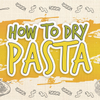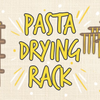Oil In Pasta Water: The Ultimate Chef’s Guide

Adding oil to pasta is a common misconception that stems from the right place, but the end results do not justify its use. The central claim from adding oil to pasta is that it stops the pasta from sticking together and the pasta water from boiling over; both can be solved in a much easier manner without adding oil as it prevents the sauce from adhering onto the surface of the pasta. This guide will take you through the various ways you can prepare pasta without having to add oil, why people do it, and finally, how to prepare perfect pasta that does not stick to your pot.

What Is Pasta?
Pasta is an Italian dish consisting of dough that’s prepared using durum wheat and water. The dough gets extruded or stamped into the required shapes and can be cooked by boiling it in water. Pasta can be divided into two major categories: dried and fresh pasta. Dried varieties are produced and dried commercially via the extrusion process. Fresh varieties, on the other hand, are prepared by hand as per the traditional recipe.
Further reading material:https://en.wikipedia.org/wiki/Pasta

Why People Add Oil To Pasta Water?
1. To Try And Stopover BoilingPasta water tends to over boil is due to the release of scratch molecules from the pasta; these get superheated by the boiling water and form stretchy bubbles that trap hot vapor within the surface of the boiling water. These bubbles eventually explode, spilling hot water all over the pot and the stove. A common suggestion is to add oil or butter, which doesn't mix with water; thus it can prevent the bubbles from forming on the surface. While ideally, the oil should break down some of the superheated starch, it would also coat the pasta surface, preventing the sauce from adhering well with the pasta.
2. To Prevent Pasta From Sticking TogetherAdding oil to pasta water will give every strand of pasta a fine coat of oil all around its surface preventing it from sticking together. However, this has another more significant consequence: the oil cannot mix with water, and therefore it prevents the pasta sauce from adhering with the surface of the pasta strands. As a result, the pasta cannot absorb the sauce’s flavors, and instead, the sauce will just dribble away garlic-flavored olive oil drip
Further reading material: splendidtable.org
Pasta And Oil Myths
Adding oil to pasta is just another busted myth as it does more damage to your pasta than any good. It's recommended to avoid mixing oil with pasta while it cooks as it will prevent the sauce from adhering with the pasta leading to bland tasting pasta that's also not presentable looking.

Chef’s Opinions
Fabio Viviani Castigated the mythical practice of adding oil to boiling pasta water, saying it only served to tarnish the pasta’s ability to mix with sauce.
Gordon Ramsey was caught off guard after adding oil to the boiling pasta water, implying it would help keep the pasta strands separated.

Ways To Stop Pasta From Sticking
Use A Large PotUsing a large pot to cook your pasta provides more surface area for the pasta water to evaporate and bubble harmlessly halfway in the deep pot- it's just science. This also makes it much easier to drop the pasta into the boiling water without splashing the hot liquid outwards.
Use Appropriate RatiosFollow the manufacturer's recommended ratio of pasta to water and salt. However, this can also Stir Constantly
Stirring the boiling pasta water constantly will keep breaking the bubbles as they form, thus preventing further accumulation. This also ensures that the hot vapor escapes outwards harmlessly.
Take The Lid OffTaking the lid off allows the hot poor to escape freely instead of accumulating inside the pot where it gets trapped in bubbles, resulting in superheated vapor. When the bubbles eventually expelled, the splash of boiling water superheated vapor allowed the kitchen.
Should You Add Salt?Yes, pasta should only be added to the boiling water after being salted with at least one teaspoon of salt for every 4 quarts of water.
Further reading material: today.com
Is It A Myth?Yes, adding oil to pasta is just another busted myth that hopes to solve a problem that can be better fixed by other little tweaks to the recipe and cooking set up. be adjusted to suit your flavor needs. Generally, the 1:1:4 ratio works best: 1 pound of pasta to 1 tablespoon of salt and 4 quarts of water (16 cups). It's recommended to cook your pasta al dente which translates to cooking the pasta to just the right texture-” firm to the bite.”

Common Questions
Can You Cook Pasta Without Oil?Yes, pasta should be cooked without oil, and if it should be used, it’s only as part of an accompaniment dish.
Is It Ok To Drink Pasta Water?While you can drink pasta water, it has a much better culinary use: To make the pasta sauce, the scratch molecules in the pasta water act as emulsifiers in the sauce, giving it a nice thick texture.
What Happens If You Rinse Pasta?If you rinse pasta, you will wash away the outer layer of scratch that adheres to the pasta sauce; this results in clumps of pasta and sauce that don't mix at all.
How Do Restaurants Keep Pasta From Sticking?Restaurants always have a pot of boiling water standing by so that whenever an order comes in, the pasta that was cooked al dente gets dunked in the boiling water, which separates the strands once more and heats up the layer of starch.
Should You Salt Water Before Or After It Is Boiling?Pasta water should only be salted after boiling, after which it has to boil back up before the pasta can be added.
Is Pasta Water Good For Your Hair?Yes, pasta water contains nutrients that are great for your hair- allow the pasta water to cool down and then massage it into your hair.
How Do You Add Olive Oil To Pasta?
You should only add olive oil to pasta as part of a side dish so that it doesn't affect the pasta’s adhering capabilities.
By Susan Grey
Written April 17th 2020






